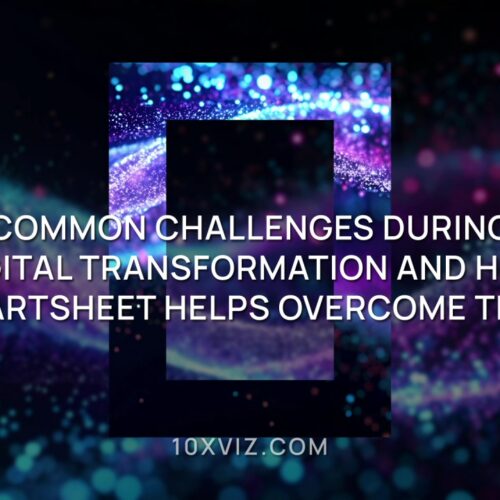Project management is an ever-evolving field, constantly adapting to the demands of dynamic business environments. While predictive project management and the Agile methodology have been at the forefront of this field, a new paradigm is emerging: hybrid project management. We’re diving into the dimensions of this innovative PM model to unpack its features, the benefits it can offer, and a few implementation strategies for organizations embracing it to enhance their PM practices.
What is hybrid project management?
To understand hybrid project management, it’s important to understand the two conventional models it merges: predictive and Agile.
- Predictive project management — also known as the waterfall method — follows a linear progression with distinct phases. It starts with meticulous planning and detailed documentation to prescribe a step-by-step model for execution. While this traditional approach provides a clear roadmap, it makes accommodating changes to project requirements difficult after the planning phase.
- Agile is iterative in nature, with cycles that prioritize responsiveness to changing requirements throughout the development process. Teams can go back and make adjustments, fostering a dynamic project environment. The drawback? Its lack of predefined structures hinders predictability and project control. This adds complexity to progress tracking and can lead to difficulties in meeting specific milestones, especially for creative projects.
Hybrid project management bridges the gap between these two methodologies by blending their best elements, namely predictive’s structured planning and documentation and Agile’s iterative responsiveness. This combination creates a PM framework that excels at balancing predictability with flexibility — ideal for modern projects.

Benefits of hybrid project management
Hybrid project management offers several key benefits to organizations across numerous industries:
- Enhanced adaptability: Hybrid PM allows teams to respond swiftly to changes in project requirements, whether from client feedback or evolving conditions. This adaptability ensures the project remains aligned with the client’s needs throughout its lifecycle, and it often reduces rework.
- Enhanced stakeholder engagement: The hybrid approach ensures key stakeholders remain involved throughout the entirety of the project, providing valuable insights and feedback. This consistent communication supports a better understanding of project requirements for client-focused outcomes.
- Continuous improvement: The iterative nature of hybrid PM facilitates ongoing refinement and enhancements for continuous improvement throughout the project lifecycle. Teams can learn from each iteration, incorporating its lessons into subsequent workflows and goals.
- Increased project control: The predictive elements of hybrid project management offer a structured framework for execution, empowering managers to manage scope effectively, set milestones, allocate resources efficiently, manage contracts and procurements, and control quality. This ensures projects stay on track, meeting objectives within specific timelines without overshooting resource constraints.
- Improved risk management: The project controls integrated in hybrid PM also enable managers to identify potential issues early in the project life cycle. By leveraging this foresight, teams can mitigate risk and apply contingency plans more proactively than Agile typically allows.
- Faster time to market: The combination of quick iterations and predictive planning can streamline workflows, significantly accelerating the development process. This results in a more optimized timeline, enabling organizations to bring their projects to market ahead of schedule and gain a competitive edge.

Implementing hybrid project management
Effective hybrid project management hinges on a robust PM platform, where customization, collaboration, visibility, and user experience (UX) are baseline value points. These platforms serve as centralized command centers, streamlining planning, teamwork, and progress monitoring.
- Customization: Because they pick and choose frameworks from other PM models, hybrid projects are rarely the same. The PM platform supporting them must be tailored to fit the unique demands and characteristics of unique projects, teams, and objectives. This flexibility allows managers to precisely shape the platform to their project’s needs — not the other way around.
- Collaboration: The ideal platform shouldn’t work in a vacuum, leading to disjointed project efforts. It should integrate effortlessly with other tools and technologies, creating a unified project management ecosystem. This integration ensures seamless data flow and cohesive project handling.
- Visibility: The platform must optimize — and never obscure — transparent, real-time insight throughout every aspect of the project, from resource allocation to task progress. This level of visibility brings all team members and stakeholders onto the same page, facilitating informed decision-making and efficient project tracking.
- Usability: The platform should be intuitive — with a user-friendly interface — and adaptable to different team members’ preferences. When usability minimizes learning curves, encourages broad usage, and eases navigation, teams can focus more on project requirements, efficiency, and deliverable quality.
A platform that balances these elements is indispensable for successful hybrid project management.
Embrace Smartsheet for hybrid PM with 10xViz
Hybrid PM represents a significant advancement in the field of project management. By blending the strengths of traditional predictive and Agile methodologies, hybrid project management breaks through limitations to enhance adaptability, project quality, and productivity. Still, successful implementation hinges on the right PM platforms.
Start with Smartsheet’s customization, robust integration capabilities, deep visibility, and user-friendly interface. 10xViz is a powerful ally for organizations seeking to unlock the full potential of Smartsheet for hybrid PM.
Visit 10xViz.com to explore how our expert consultation services can help your organization leverage Smartsheet for hybrid project management.



